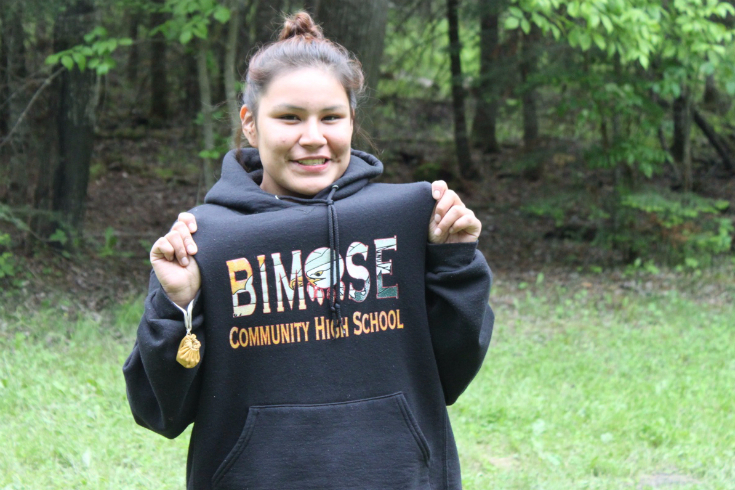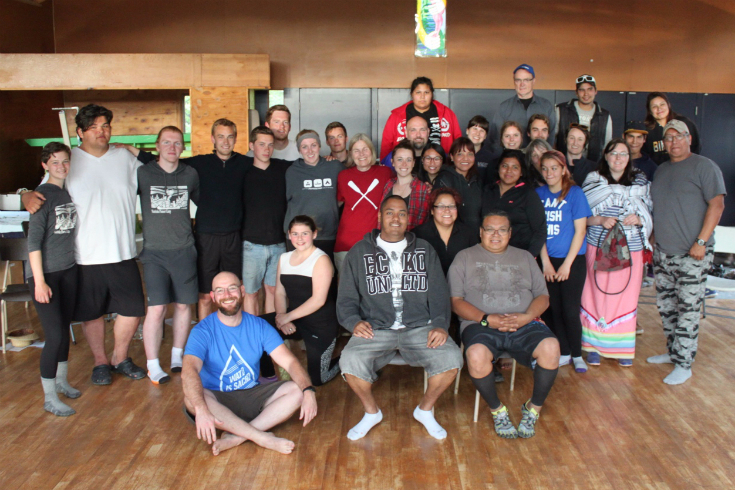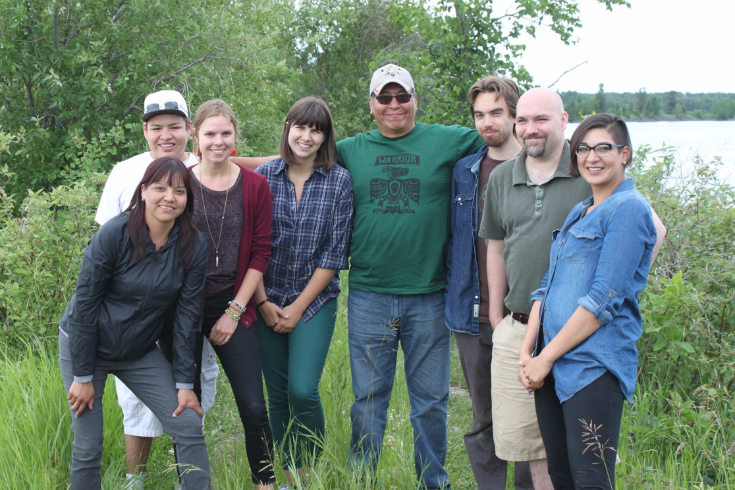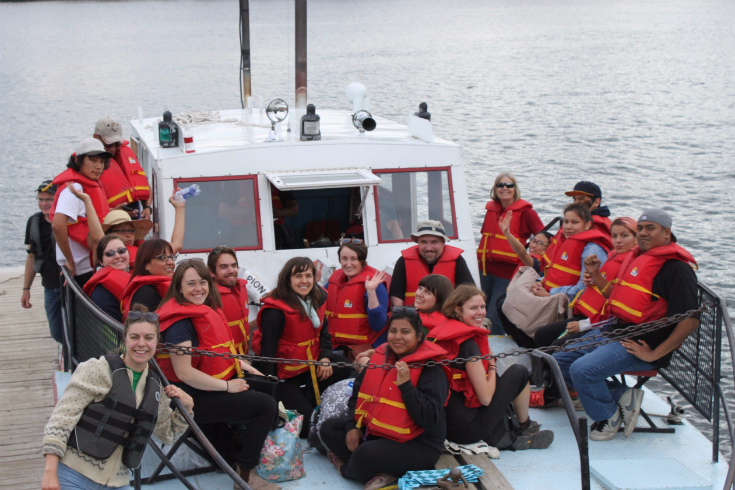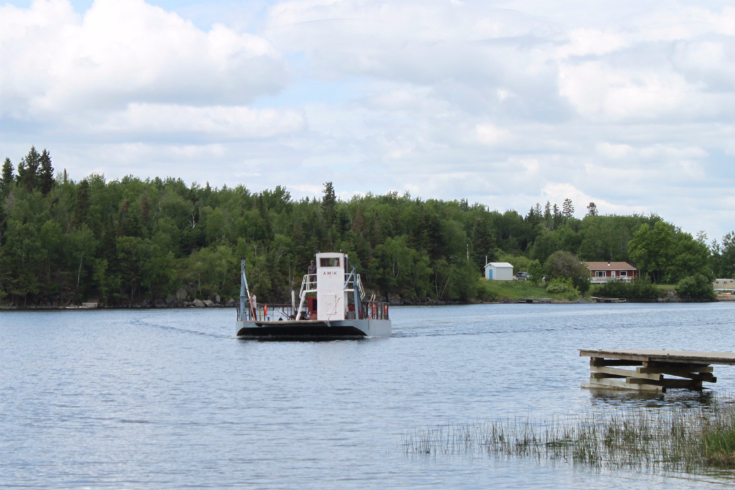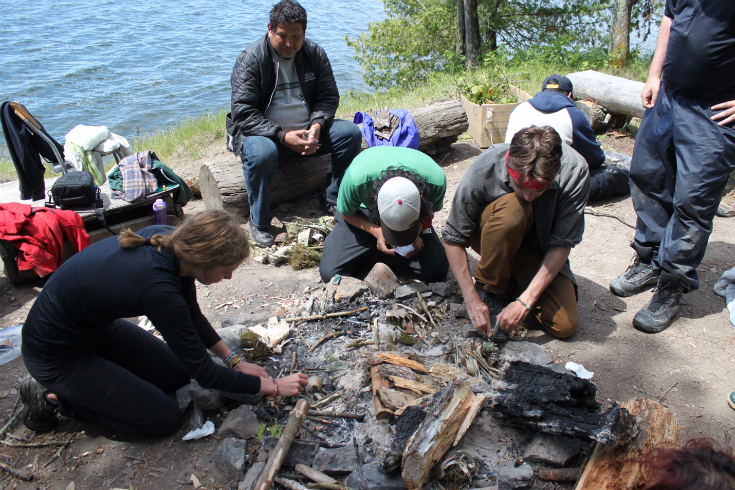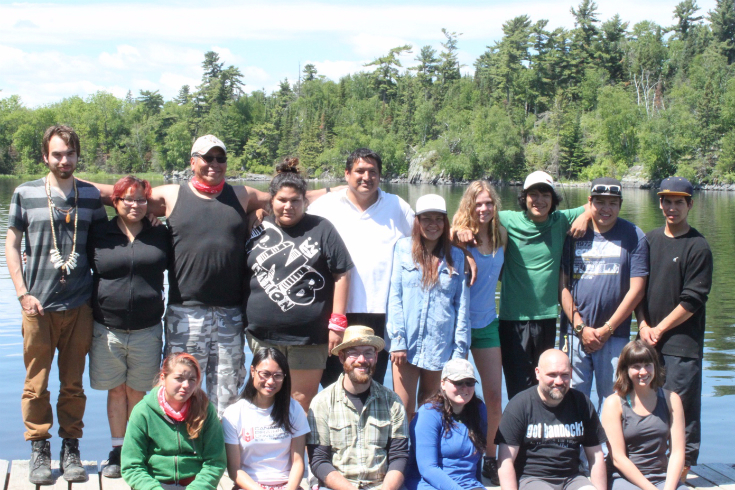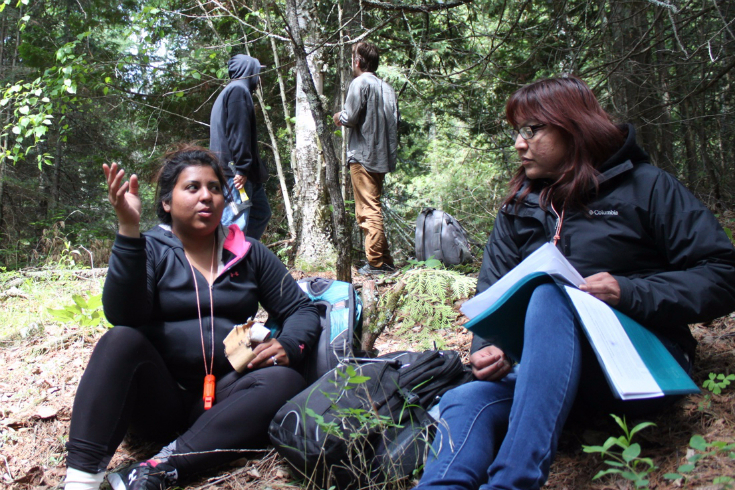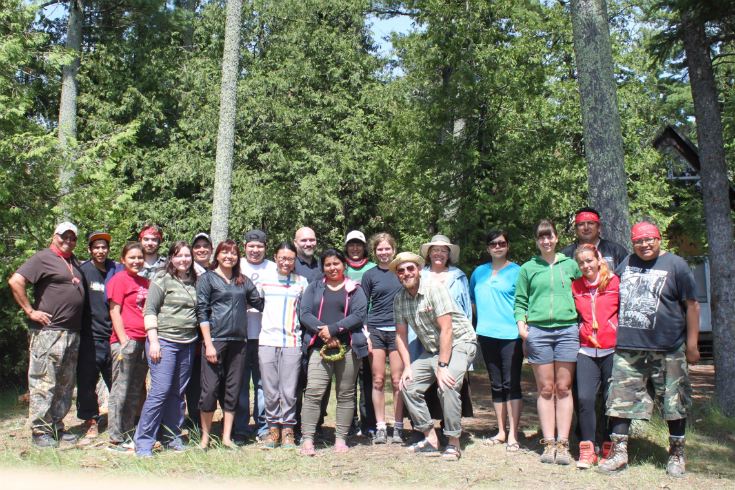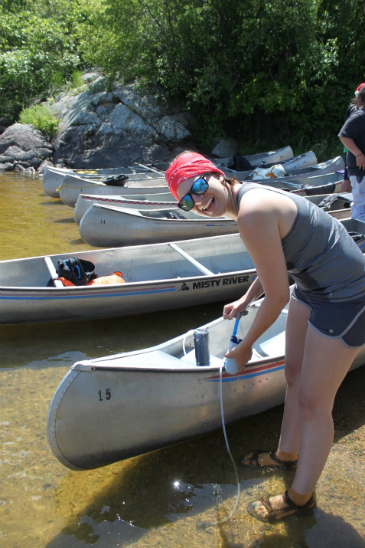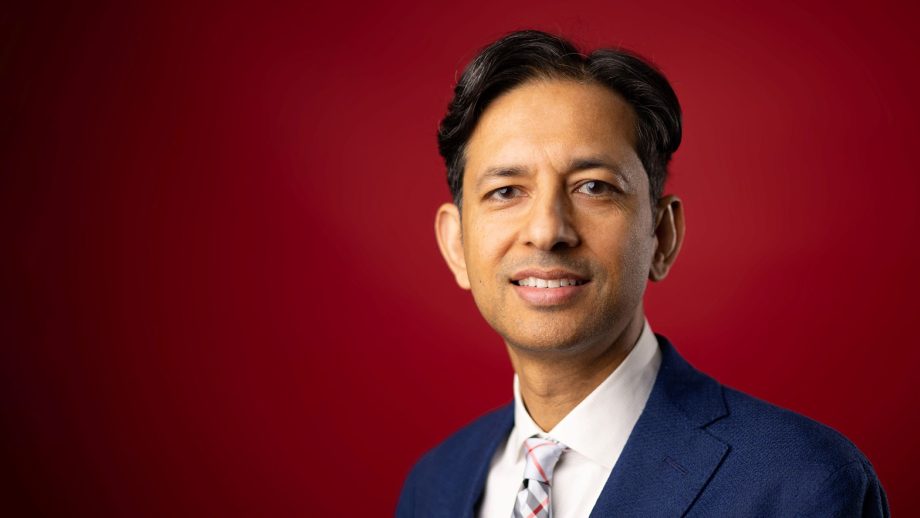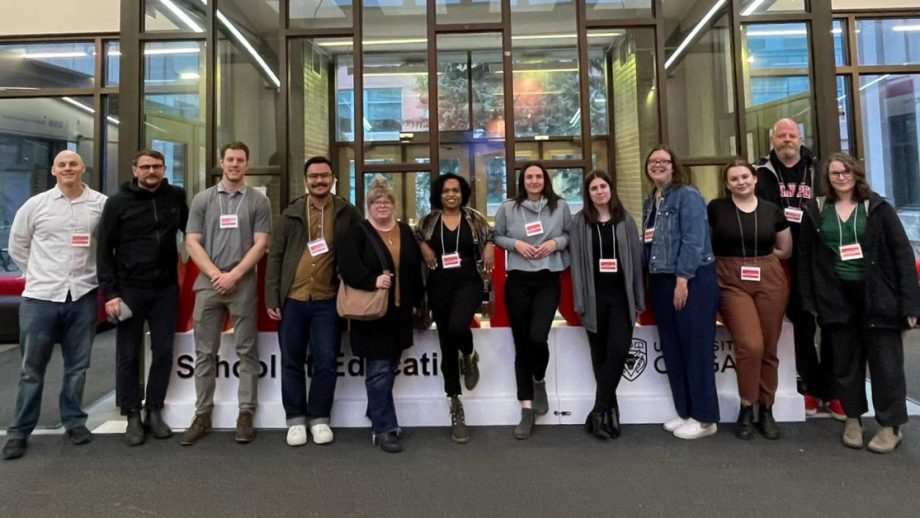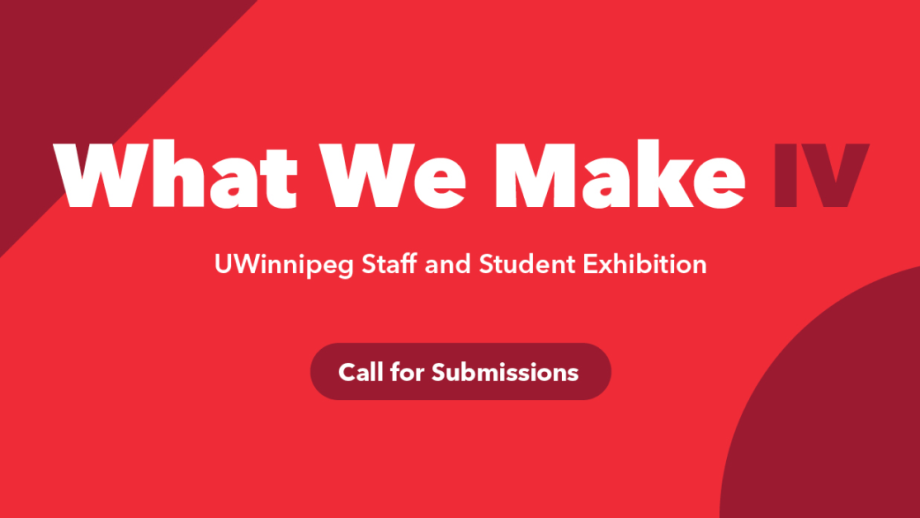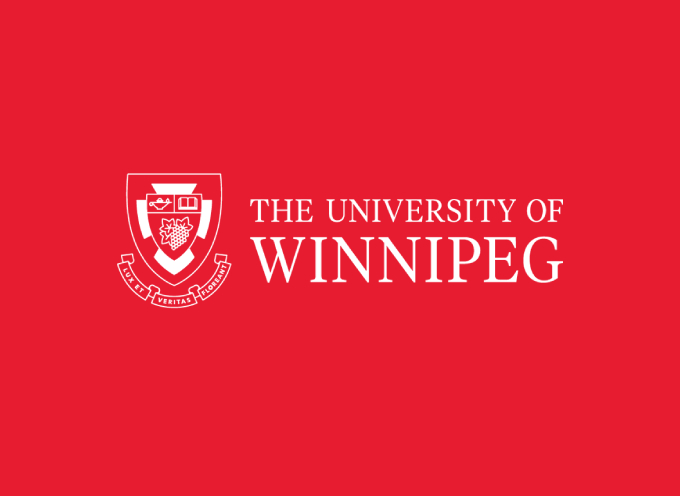Imagine learning survival skills from Indigenous knowledge keepers, canoeing, hearing teachings and stories from elders, and feasting on traditional foods as part of a summer university credit course. The Shoal Lake to Winnipeg: Practicing Land-Based Reconciliations summer class gave UWinnipeg students from across disciplines the opportunity to do just that.
“This seven-day experiential learning field school is premised on the idea that working toward settler-Indigenous reconciliation requires learning about the local-level impacts of colonialism, building face-to face relationships that honour Indigenous knowledge, including connections to the land,” explained UWinnipeg Assistant Professor Dr. Jobb Arnold, (Conflict Resolution Studies, and Menno Simons College), who helped design the course.
The course gave UWinnipeg students and youth from Shoal Lake 40 the opportunity to engage in land-based activities while team building. Through dialogues on the legacy of colonization, the students learned from each other, as well as through activities including a two-day canoe-certification course, and teachings from elders on traditional medicine. For some, this active engagement was the impetus to begin their own path of reconciliation, or possibly just a piece of a continued journey.
Student Experiences
“This experience was very humbling. I was put outside my comfort zone and I met some amazing young people from Shoal Lake 40. This experience helped me not only establish a permanent connection and memory to the land but also the people.” – Daniel Big George, Indigenous Studies, UWinnipeg student
“Over the week we laughed a lot, a lot of knowledge was shared with us, and a lot of stories and conversations were exchanged. It was more than a superficial camping trip where we learned canoeing and wilderness skills. It was deep and spiritual and demanded our full presence.” – Linda Lam, UManitoba medical student (audited course)
“The aspect of the trip which I presently think impacted me the most are the friendships that I have made with members of the group. I feel grateful for each person with whom I spent time, for every conversation and every moment of silent presence. Getting to know the youth of Shoal Lake 40 was without a doubt the highlight of my experience. I am both saddened and amazed by the experiences they have had no choice but to endure, and by their maturity, kindness and humour. Over the course of the trip, many Indigenous participants shared their history of colonial violence; physical, sexual and psychological abuse, poverty, substance abuse, and loss of culture. It was shocking and heartbreaking to listen to these individuals speak of the ways in which colonization impacted their lives. I cannot comprehend how they have made it through these continual challenges and continue to be able and willing to laugh and create relationships with white-privileged, settler-based individuals like myself. They are resilient, they are courageous and they are strong. All of the Indigenous peoples I have met on this trip have — by their actions, words and attitudes — taught me about mino bimaadiziwin*.” – Laurence Lanthier, Political Science, UWinnipeg student
* ‘Mino Bimaadiziwin’ is an Ojibway philosophy, capturing the concept of “good life” balancing the four elements of health: physical, mental, emotional and spiritual.
“Having attended this trip was a great learning experience. The canoe training was a great touch. Connecting with the land and getting us out of our comfort zone helped build relationships between the Bimose students and university students. I am so glad to have been part of such a great experience.”– Melissa Paypompee, Social Work, UWinnipeg
“It was a great week. With all the obstacles that happened, and all the new faces and laughs, it was quite an adventure. At first I didn’t want to go, but then felt like I had too. On the last day I didn’t want it to end. I had never believed in my culture until I felt like everything happens for a reason. UWinnipeg students had questions about the water of Shoal Lake and about the people. I had questions about how they see it. I wish I could say sorry to the elder who gave me the feather; he told me things I didn’t know about myself. Which is great because now I believe.” – Nathan Redsky, SL40
“Freedom Road is one step in a much larger series of problems. I have heard concern expressed by members of Shoal Lake 40 that too much attention is being given to the road. This will not address other questions like whether and when vital services will be delivered, a water filtration system, and when economic development will come to the community. Even with the road, the water would still be polluted, the animals would be poisoned, an entire economy would have to be devised from nothing, and the pain of colonization would continue to affect them all. Freedom Road is not even the provision of basic human rights, which would be clean drinking water; the road is the first small step on the path to providing basic human rights.” – Andrew Vineberg, Urban and Inner City Studies, UWinnipeg student

